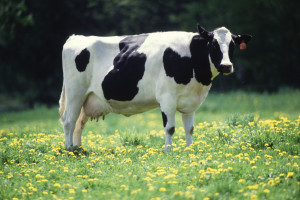Doing What Needs to be Done: Eshet Chayil (Part 21)
By Sara Esther Crispe: February 24, 2016: Category Decoding the Tradition, Inspirations
Zamemma sadeh v’tikachehu, m’prei chapeha natah karem
“She considers a field and buys it; with the fruit of her palms she plants a vineyard.”
 A number of years ago a good friend of mine gave birth in her 20th week of pregnancy. It was devastating as at the time there had never been a baby born that early that was able to survive. But miraculously, this baby didn’t die at birth. He amazed doctors as he pulled through, day after day and then week after week. However, his little lungs were simply not developed enough to provide sufficient oxygen to his tiny body, and at 6 weeks old he passed away.
A number of years ago a good friend of mine gave birth in her 20th week of pregnancy. It was devastating as at the time there had never been a baby born that early that was able to survive. But miraculously, this baby didn’t die at birth. He amazed doctors as he pulled through, day after day and then week after week. However, his little lungs were simply not developed enough to provide sufficient oxygen to his tiny body, and at 6 weeks old he passed away.
During his short life, his mother pumped her milk with the hope that one day he would be able to be nourished from it. When he passed, not only was she left with a freezer full of milk that she had kept for her son, but her milk was still coming in and she needed to continue pumping until she could wean herself to avoid infection. As if it was not painful enough to no longer have her baby, every time she pumped her milk–this life-giving, sustainable nourishment–it was an excruciatingly painful reminder that there was no baby to feed.
Immediately following the death of her son, another young mother had given birth to an extremely sick baby. It was feared that he too would not be able to survive, and what made his situation even harder was that he was seemingly allergic to all forms of nourishment that they tried to give him. He rejected his own mother’s milk and could not handle all the alternatives they tried. As a last resort, they asked my friend if she wouldn’t mind if they tried to feed this baby her milk. They had found that often newborns could accept other breast milk even when they couldn’t handle the milk from their mothers.
Miraculously, this baby was able to drink her milk. It was the only thing his body accepted and it was going to be the one thing that might be able to save his life.
The nurses were nervous to make such a sensitive request to my friend. After all, to ask a grieving mother for her stored milk supply was one thing. But what they really needed was for her to continue pumping for a few more weeks for this baby. To continue providing the very milk that was for her own child to another.
Yet she immediately agreed. If her milk could save the life of another baby of course she was willing to do whatever it would take.
But in retelling me this story she added something that has always strongly impacted me. A perspective and understanding as to who we are and what we are here to do and accomplish.
To preface, this friend of mine is a powerhouse of a woman. She is a well-known educator, a brilliant thinker and international acclaimed speaker. But at this painful point in her life, she had another role. An essential role. To put it in her own words, at this point G-d had wanted her to be a cow.
I know, it doesn’t sound great, but that is how she felt. And while it sounds so degrading it was so empowering. Providing milk was going to save a life. Not her teachings, not her wisdom, not her personality…but her milk.
I often think of this story as a reminder that there are times that what we are most needed for and what we want to be doing, may not be the same thing. Sometimes they are even the complete opposite. But it is specifically when we let go of our narrow definitions and focus on the end goal, that we make ourselves available to opportunities and experiences that we would have otherwise missed.
This 7th verse of Eshet Chayil focuses on the willingness to be flexible and to do whatever it is that needs to be done. If the field needs to be bought, she will consider it and buy it. If a vineyard needs to be planted, she will do it with her own hands. If the investment is her money or her time, she will be open to whatever it is.
The woman alluded to this verse is Yocheved, the mother of Moshe. Yocheved is perhaps the ultimate role model of one who knew the necessity of being flexible and focusing on the end goal.
She is known as the midwife for the Jewish people. She dedicated so much of her life to helping other women bring their babies into this world. And when it was decreed by Pharaoh that all of the Jewish male babies were to be thrown into the Nile, she risked her life to deceive the Egyptian authorities by not reporting countless births and then claiming that the women gave birth so quickly and quietly that she never even knew they were in labor so she didn’t attend the births.
But it was when she birthed her own baby that she was put to the ultimate test. Here she had a son, a baby that almost had not come into this world out of fear of this horrific decree from Pharaoh, and now, she would have to take this beloved baby of hers and put him in the Nile. She kept him as long as she could, but eventually she had no other choice. So she put him in a basket hoping it would protect him and placed him in the Nile, praying that he would be found and by an Egyptian who might save him.
Her daughter, Miriam, followed the basket and watched as Batya, the very daughter of Pharaoh, saved him from the waters. And then, risking her life and the life of this Jewish baby, she approached Batya and convinced her that this baby would need to be nursed. And she know a woman, a wet-nurse, who could do the job. And so, she ended up taking her own baby brother back to his mother in order for her to nurse him so that she could eventually return him to Pharaoh’s home.
 Yocheved knew that if she led on, in any way, that this was her son, it would jeopardize his life, the life of her family, and the life of so many Jewish people. So she assumed the role of a wet-nurse to her own baby. She knew she would need to give him away, a second time, but she also felt that her time with him was a blessing. It was a miracle he had survived, it was a miracle he had temporarily been returned to her and she believed that there would be more miracles to follow. And so she did what needed to be done, for her entire focus was on the end goal, to keep her son alive, no matter what the cost to her.
Yocheved knew that if she led on, in any way, that this was her son, it would jeopardize his life, the life of her family, and the life of so many Jewish people. So she assumed the role of a wet-nurse to her own baby. She knew she would need to give him away, a second time, but she also felt that her time with him was a blessing. It was a miracle he had survived, it was a miracle he had temporarily been returned to her and she believed that there would be more miracles to follow. And so she did what needed to be done, for her entire focus was on the end goal, to keep her son alive, no matter what the cost to her.
And just as was discussed with the planting of the vineyard which required the woman’s input, work, patience and faith to create a wine that was holy and more valuable with time, so too, Moshe is compared to a vineyard. He is called the Vineyard of the Lord of Hosts [Midrash Mishlei 31].
His life, his purpose, and his everlasting impact has its root and foundation in his mother’s dedication, understanding and focus that she would do whatever it would take, and be whoever she had to be, to save his life. As a midwife she helped bring life, as a mother she created life and as a wet-nurse she sustained life. All holy roles. All essential roles. All roles that gave that saved the Jewish people and provided them with their leader and their redeemer.
In Part 22 we will discuss the letter Zayin and how it is the very letter the represents the woman of valor.
http://www.interinclusion.org/inspirations/coming-full-circle-eshet-chayil-part-22/
http://www.interinclusion.org/inspirations/investing-in-our-future-eshet-chayil-part-20/
Doing What Needs to be Done: Eshet Chayil (Part 21),























;)
;)
;)
;)
;)
;)
;)
;)
;)
;)

